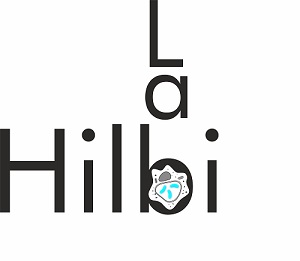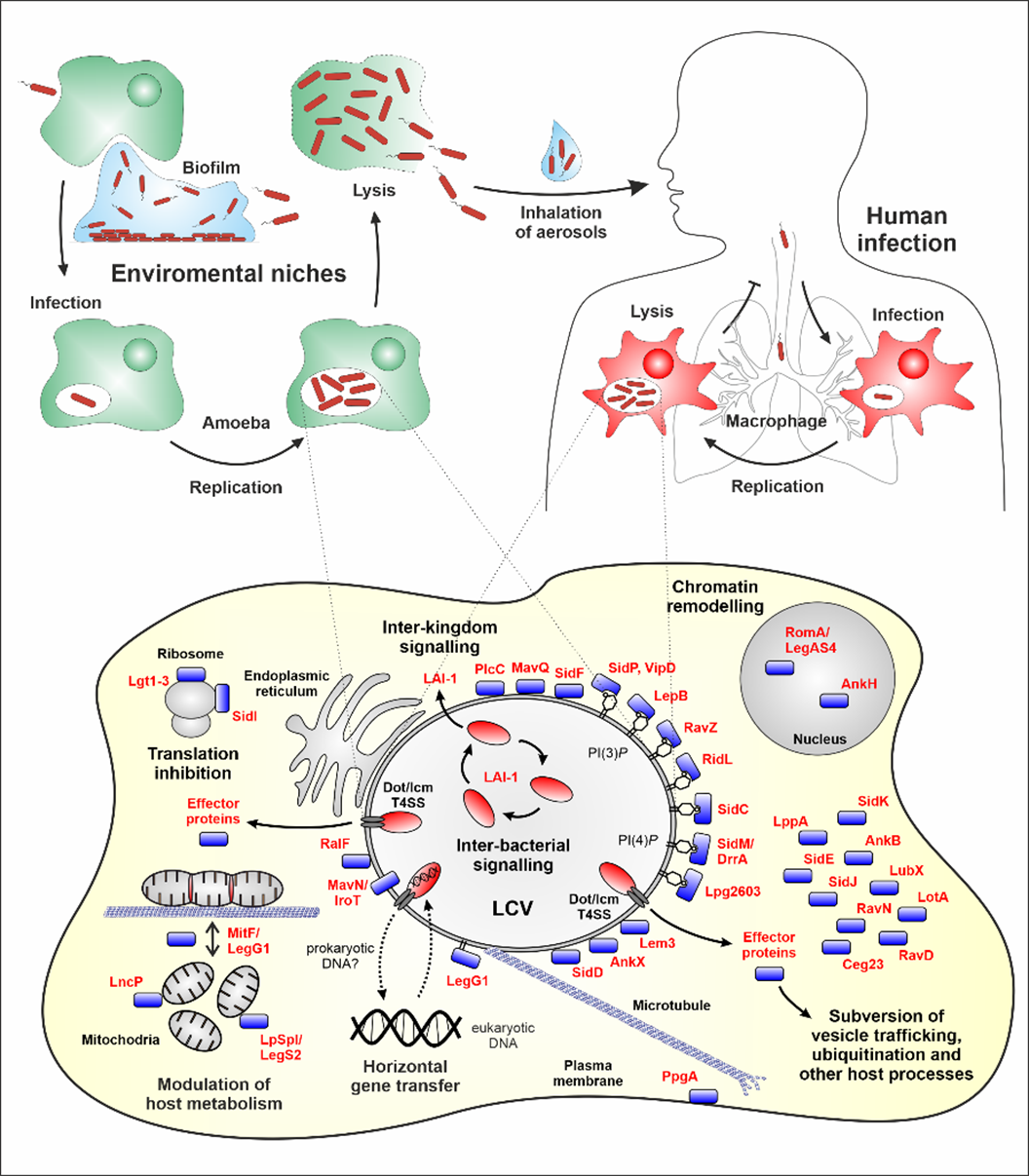
Virulence, communication, and persistence of Legionella
Legionella species are Gram-negative bacteria, which replicate in environmental amoeba and in lung macrophages, thereby triggering a severe pneumonia termed Legionnaires’ disease. The pathogen subverts host cell functions by injecting more than 300 different “effector proteins” as well as small signaling molecules (1) (Fig. 1). Our research aims at elucidating the (i) mode of action of effector proteins, (ii) cell-cell communication by small signaling molecules, (iii) persistence and resuscitation mechanisms, and (iv) One Health aspects of Legionella species.

Fig. 1. Legionella pneumophila – Environmental niches, human infection, and intracellular growth.
L. pneumophila colonizes biofilms and replicates in protozoa. Upon inhalation, the pathogen grows within and destroys lung macrophages, thereby causing Legionnaires’ disease. L. pneumophila employs the Icm/Dot type IV secretion system and >300 different “effector proteins” to govern interactions with host cells and to form a unique replication compartment, the “Legionella-containing vacuole” (LCV). Inter-bacterial and inter-kingdom communication is mediated by the organic signaling compound LAI-1 (Legionella autoinducer-1, 3-hydroxypentadecane-4-one) and the inorganic gas nitric oxide (NO). L. pneumophila shows phenotypic heterogeneity and can adopt a persistent, antibiotic-resistant state.
Reference
1. Hilbi, H., and Buchrieser, C. (2022) Microbe Profile: Legionella pneumophila - a copycat eukaryote. Microbiology 168: doi: 10.1099/mic.1090.001142.
Group members
- Hubert Hilbi, Ph.D., principal investigator
- Ana Katic, Ph.D., postdoctoral research assistant
- Elizabeth Vittori, Ph.D., postdoctoral research assistant
- Daniel Schator, Ph.D., postdoctoral research assistant
- Camille Schmid , Ph.D. student, University of Zurich
- Pia Stauffer, Ph.D. student, University of Zurich
- Tobias Jäggi, Ph. D. student, University of Zurich
- Tong Chen, Ph. D. student, University of Zurich
- Luca Langlois, Ph. D. student, University of Zurich
- Selina Trinkler, Master student
- Sarah Anthamatten, Master student
- Lukas Bösch, Master student
Collaborations
- Dörte Becher (University of Greifswald)
- Carmen Buchrieser (Pasteur Institute, Paris)
- Wolfgang Eisenreich (TU Munich)
- Aymelt Itzen (TU Munich)
- Martin Pilhofer (ETH Zürich)
- Jürgen Seibel (University of Würzburg)
- Markus Seeger (University of Zürich)
- Vikram Panse (University of Zürich)
- Julia Vorholt (ETH Zürich)